Consciousness in Danger: Roy Ascott
Roy Ascott (GB) (born 1934) is an influential British artist and teacher engaged with the theoretical and practical application of cybernetics (the study of networks of dynamic relationships) to art. Since the 1960s, he has been a practitioner of interactive computer art, electronic art, cybernetic art, and telematic art; examples of his pioneering works were recently included in Electronic Superhighway at the Whitechapel Gallery in London and at MAAT in Lisbon. Ascott has taught and advised internationally. He is widely seen as a radical innovator in arts education and research and is the founding president of the Planetary Collegium, an advanced research network that he set up in 2003, and is also DeTao Master of Technoetic Arts at DTMA in Shanghai. He received the first Ars Electronica Golden Nica award for Visionary Pioneer of Media Art in 2014.
The following is an edited transcript from the conversation between Roy Ascott and Hege Tapio in Corfu, May 27th, 2017.
Hege Tapio (HT): Technological advances continue to change the way we communicate and interact, urging us to explore new modes of operation and new ways of making. In this context, what is dangerous art to you?
Roy Ascott (RA): Well, the danger is very simple. It is art that sets its own limits and develops within itself, speaks only to itself, and resides alone within the materialist model of the universe. Dangerous, where the technology employed supports political oppression - capitalism, for example, and is supported by it. Dangerous, because it refuses to explore out-of-body states, while playing with ideas of us getting off the surface of the earth.
Roy Ascott at Ars Electronica 2014, Linz
The danger
is very simple
HT: How do you see network technologies affecting the future of human consciousness?
RA: The next interesting and probably important moment will be when the interface of telematic networks moves into the body. It is virtually there; most people walk around with this thing in their hands 24/7. It is a short step to an implant. And when that is done, we can explore other kinds of thinking processes that can be put to work. We can begin to understand better the universal form of organism, which we tend to forget, particularly politically. We seem to be too often concerned with isolation of the ‘self’, of the individual, and we too little think of ourselves as part of larger organisms. We live in a kind of fraudulent situation. Most of the time, we need to have the Wi-Fi prepared in the environment. It is still not as freely available as water, and God knows there is enough restriction on water across the planet. So, at the moment, it is a sort of myth, and we all play with this idea of being globally interconnected. In fact, we are not.
We all play with this idea
of being globally interconnected.
In fact, we are not.
That raises an important question: “To what extent will interconnection be voluntary or oppressive?” I mean, in the streets, you cannot help it if someone says: "Hey, you." And you cannot stop someone from stepping in your way and asking a question. Whereas, if it happened telematically, what would it mean? Are we going to be bombarded? How will we deal with messages, contacts, information flow? Huge questions arise when we become telematic. As I say, at the moment, it is play, it is theater, it is useful, and of course, as always, it is for the privileged. If you live in a space like New York downtown, you will have Wi-Fi on call, like water is on call there, but in most parts of the world, you do not have it. But most parts of the world strain towards it and act as if they've got it. So, let's talk about these things when we've got some telematic situations. But I do think we will see implants in the body for the reception and transmission of electronic messages, and the sharing of our individual biological, and eventually, psychic states. I think that's inevitable. In fact, if you look at Apple and Google and so on, that is the only place they have left to go.
HT: Considering the growing immersion in network and global connectedness, what do you think are the biggest dangers for our future society and culture?
RA: Well, they are obvious, with fascism on the rise in the US and Europe. There can be access to channels of thought and to ways of resolving issues and problems and projects that cannot be absolutely secure; that is the first thing. As the understanding of networks increases, so does the knowledge about how to break into and abuse these networks. So, it is thought to be dangerous and will impact the front line of political assertions and political movements. And, most sadly, it will do so in all the systematic advances for and in the hands of capitalism. That is a deeply serious problem, even for those who thought they benefited from capitalism. Those who thought they were privileged and thought capitalism is the thing are now questioning it. They don't know the alternative; they have only very simple things, like soviet communism or something of the deep past that they don't quite understand. I think that is the interesting moment we are in now. Networking calls for and will eventually enhance new political, social, and economic strategies. Artists have a role to play in this.
Change Painting (1961) by Roy Ascott.
HT: The topic of artificial intelligence has become a hyped field of interest for artists too. It also is the topic of Ars Electronica Festival 2017. How do you see the artist's role in this field of technological development?
RA: I am particularly interested in what AI virtual worlds have used. People in various ways are testing out the persona they might adopt under different circumstances. So, we are already dealing with creating and playing with a range of ‘selves’. We are no longer stuck with "this is me and this is how I was" - I may now have another me over there. But when you think of the way some people could become involved and could have five or six avatars within a situation at the same time, we are beginning to look at the idea of managing these many selves. These avatars will quickly acquire artificial intelligence, so they will have response mechanisms, including emotions, for example, that have proved to be quite useful in our own evolution. And intellectual persuasions, for example, will be something that artificial intelligence will be able to deal with spontaneously in real time. I think this will mean we become managers of these selves. What the 'We' is, what the 'I' is - is an interesting philosophical question. On one hand, I think the management of many selves is where we are heading as a consequence of artificial intelligence. On the other hand, we have the fun aspect about robots and so forth, and I think we are living in it. I think it is a childish stage of thinking we will make sort of other people that look like us. Of course, we will be looking at endowing environments with intelligence. So, if we want a cup of tea, don't expect a little person. On the other hand, we don't expect the kettle to start boiling. We have completely different systems for doing this stuff that needs to be done externally to ourselves.
Blackboard Notes (1969) by Roy Ascott.
These avatars will quickly
acquire artificial intelligence
HT: Where is the human body in all of this?
RA: That is a good question. The human body in my view, as we understand it, represents an evolutionary moment towards the realization of a universal consciousness. I think, primordially, we have consciousness. I see space and consciousness as primordial fields. Organisms on our planet evolve to navigate these fields, you could say, or to exercise themselves or develop, or to enter into those two fields - space and consciousness - some more advanced than others. For example, we get the idea that dogs probably have more access to consciousness than tulips, but it is not certain. We know plants have a sensory apparatus that recognizes change, not just in terms of nutrition in their environment. Ayahuasqueros in South America recognise plants as possessing intelligence and giving access to consciousness. We seem to sit at the top of that development; we have greater access. There is every inhibition to deny it in Western societies for fear of the consequences for political control.
Space and consciousness
as primordial fields
Those who wish to exercise power over others must ensure others’ access to the field of consciousness is extremely limited. You can see education as a process for doing precisely that, rather than what it is supposed to do: open up the mind. And remember State education was introduced in Britain in the 19th century in the service of industry to create a productive workforce. It was the same thing, I believe, in ancient Egypt. The same with the Royal College of Art, created in 1831, essentially to make products more marketable to move faster.
The consciousness is primordial
and organisms move towards
greater and greater access to it
o get back to the question, I think the consciousness is primordial and organisms move towards greater and greater access to it. And we have developed this organ, the brain, which has access to it. But there are other cultures that quite early discovered the intelligence in which accumulated knowledge in one individual shared with others produces knowledge and we can access it through various systems. So, with plants, for example, in the forest in South America, the ayahuasca has its essential role in the development of consciousness and awareness in those sorts of cultures. There is a lot for us to learn about intelligence from nature.
There is a lot for us
to learn about intelligence
from nature
Plastic Transactions (1971) by Roy Ascott.
HT: What is the most dangerous thing you have done as an artist?
RA: I suppose it is the Change Paintings I produced (1), which introduced the idea of interaction and the idea that the viewer makes the picture, makes the meaning. Equally, many authorities have damned my educational policies as too radical, although not in China, where my studio is greatly supported. And art is seen as a system that includes the artist, the artwork, and the viewer and which overturned the idea that the artist transmits meaning to the viewer and the viewer learns to receive it. It was probably dangerous and could have been seen as dangerous to the way art and cultural authority more generally was and still is. I mean, nobody wants to pay for art, unless it can be related to investment, and that ties into the meaning attached to the work, what it conveys, the values of a period, or the notability of an individual, or the power of the state or whatever. If you say the function of art is not to transmit values, ideas and so on, but to enable the creation of values, ideas and experiences by the viewer, then I think that -in terms of the art market and in terms of art history- is probably a dangerous idea.
Many authorities have damned
my educational policies
as too radical
References:
(1) Change Paintings: http://www.englandgallery.com/artists/artists_group/?mainId=253&media=ALL










